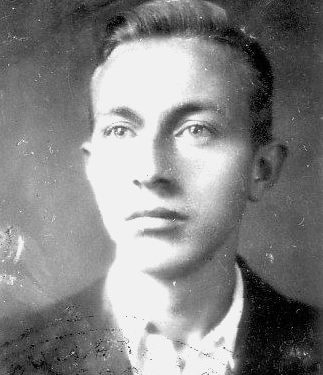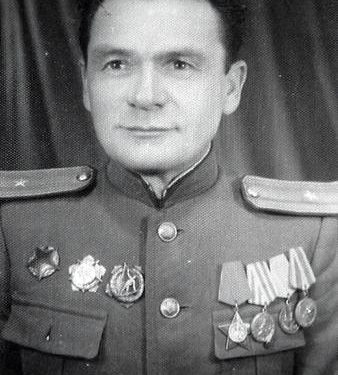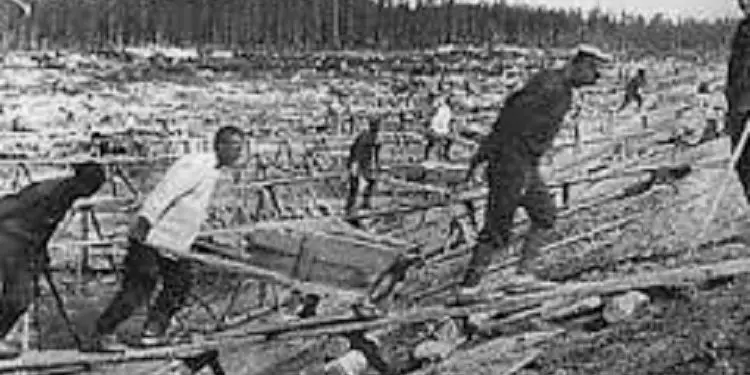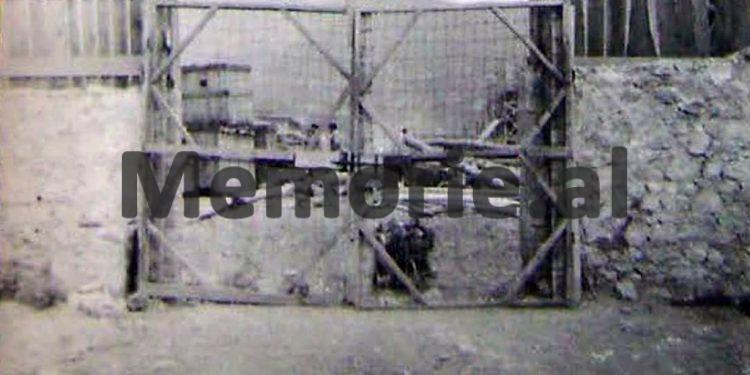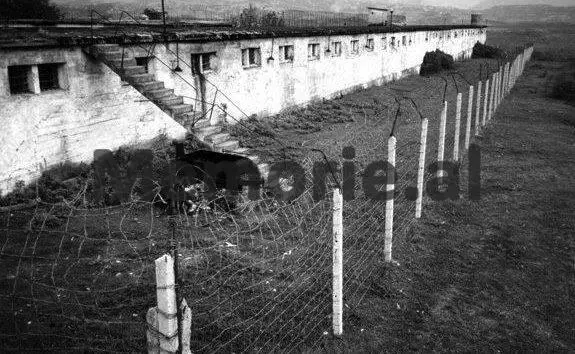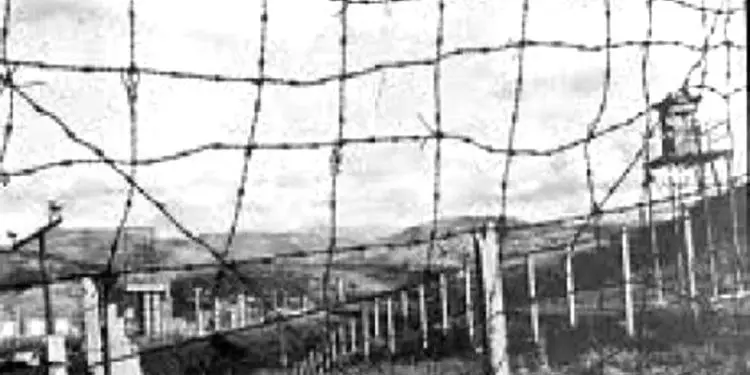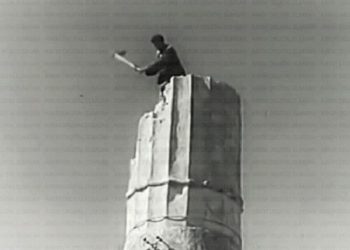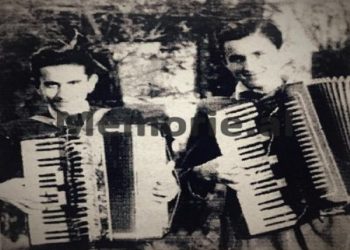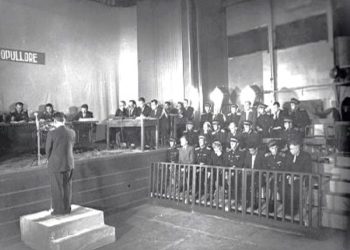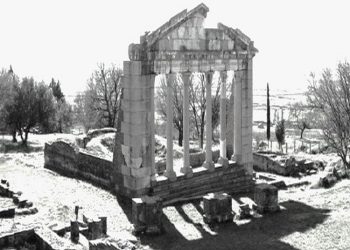By Uran Kalakulla
Part Twenty-Four
Nazism and Communism
Memorie.al / Nazism lasted 12 years, while Stalinism lasted twice as long. In addition to many common characteristics, there are many differences between them. The hypocrisy and demagogy of Stalinism was of a more subtle nature, which was not based on a program that was openly barbaric, like Hitler’s, but on a socialist, progressive, scientific and popular ideology, in the eyes of the workers; an ideology that was like a convenient and comfortable curtain to lie to the working class, to lull the sharpness of intellectuals and rivals in the struggle for power.
One of the consequences of this peculiarity of Stalinism is that the entire Soviet people, its best, most capable, hardworking and honest representatives, suffered the most terrible blow. At least 10-15 million Soviets lost their lives in the torture chambers of the KGB, martyred or executed, as well as in the camps of the gulag and others like them, camps where it was forbidden to correspond (in fact they were prototypes of the Nazi death camps); in the mines in the ice of Norilsk and Vorkuta, where people died from cold, from hunger, from crushing work in countless construction sites, in the exploitation of forests, in the opening of canals and during transportation in lead-lined wagons, or in the flooded barns of the death ships.
Continued from the previous issue
Riza Kuçi’s simplicity or modesty is and remains a natural result of a correct spiritual formation, of wisdom, knowledge, Socratic logic, and self-restraint and especially of a sound and unyielding moral world. Modesty is an inherent feature of serious and balanced people. It is a rare phenomenon of a sound moral world. It is almost the quintessence of virtue. Riza’s modesty and honesty are the two Herculean pillars of his character, nature, and personality. I would even dare to say that his modesty is of a sublime degree. As for honesty, I put my hand in the fire, as our popular expression says: Riza Kuçi, in his entire life (now seventy years old), has never committed any act, no matter how insignificant, that belongs to the world of vice and evil, against anyone, even if they were his enemies. Why, surprisingly, Riza Kuçi had no enemies, except for those who caused him the horrors of a long prison sentence and those who exhausted his homeland and martyred an entire people. Riza Kuçi did not know personal revenge. He knew only justice, trial by law, according to the norms of international justice for all criminals.
“We, says Saint Augustine, have the ability to do evil, but moral duty prevents us.” Such a world is that of our Zakes. Morality in him is exactly what Plato calls the cardinals and which, according to him, consists of prudence, justice, strength and temperance. My friend’s moral world is also as Kant says: a person who has self-interest as a foreigner, and pushes you to do your duty to the end.
Riza Kuçi was an example of virtue. He has always been like that. He, even in terms of virtue, seemed to completely fulfill those norms that the philosophers of Hellenic antiquity, Antisthenes and Aristotle, defined: “virtue is self-mastery” and that “man must be guided by habit, to always do good deeds”. Then, doesn’t the saying of Saint Augustine that “virtue lies in the perfection of man as such” also fit our character? Of course, we are talking about MAN with capital letters and not about those whom our Migjeni called with his piercing irony; “two-legged beings”.
All those who have known Riza Kuçi and have spent even a little time with him, have a special sympathy and respect for this man. It is surprising that in my entire life, I have never met a person who would say even a bad word about him, at least, a small complaint or a reservation. No! All those who have known him, from a very young age, have only respect and honor for my dear friend. This is the greatest wealth that Riza Kuçi has accumulated during his arduous life!
Undoubtedly, for someone who is a real man, this is the greatest wealth, which cannot be equaled even by the millions and billions of dollars that those who worship Pluto, the pagan god of material wealth, can have or can accumulate. Nor can it be equaled by those who have so much in their hearts the offices and the dowries that flow from them, as on the stage of an operetta.
Riza Kuçi, loyal to his race, has had only the freedom of Albania, its maximum progress, as his dream and ideal all his life the well-being of the people, the unity of the entire nation, full civil freedom and true democracy, like the Western European or American one. He was and remains forever a determined patriot, a convinced nationalist. And for this he has tried and fought consistently all his life. He is one of the true Albanians; I would say the classic Albanians. He, as a man, is a standard of decency and a serious attitude to civic life, a great example of virtue and sublime modesty.
In the Rubik’s prison camp
The Rubik’s prison camp was built on the bank of the Fan River, beyond the bridge of that mining town; exactly opposite the mountain, on which at that time stood a beautiful Catholic church, where the prelate and distinguished historian, Marin Sirdani, had been a priest. The riverside enclosure was (mostly) made of brick, in the middle of which there was (surprisingly) a space from which you could go out into the river. While the rest of the area, in the shape of a square, was surrounded by barbed wire, where guard towers with bipod machine guns were erected almost ten meters between them.
There was the construction site of the new copper smelting and refining plant. In fact, in this plant, the most accurate smelting of the red metal would be carried out and, also, a percentage of pure gold would be extracted from there, I think 1,000 kg. per year. So, this plant would also be a strategic object. And, precisely us, the “enemies of the people”, were “entrusted” with its construction! In the corner of this large enclosure, there was another, smaller enclosure, in which a carbine was erected, designed to be its laboratory. This object served (how long we would be there), as a place of residence for us, the new slaves of forced labor.
To flee Tirana and come to that hideout was sadness in itself, without counting our conditions and treatment. But we were shackled slaves or, more precisely, work animals in the eyes and minds of our masters, the communist rulers. As in the “Puna” block, on the edge of Lana, where we built a row of apartments, here too, officially that object was simply called; “Department 307” – Rubik. In our letters, this is how we would give our address to families.
This was done so that the posts and the people would not know that that place was full of political prisoners or, more precisely, full of “enemies of the people”. Secrecy and mystery were one of the fundamental features of the communist government, which, on occasions of military parades, would appear in the middle of the boulevard, with cannons and tanks, and even with rockets, while supersonic military planes flew close and threateningly above them, making a deafening noise. As if we were in some kind of weapon more secret than those weapons! Or were we the chief disgrace of that regime?
The commanding cadre of that prison camp was the same as that of Tirana, but here it began to openly display its bestial tendencies in its treatment of us, with an unrestrained zeal and cruelty. Therefore, it (the Rubik prison camp) proved that it had the “merit” to be called the place of iron discipline, the place of exemplary punishment, very close (if not worse) to the Burrel prison. Its example would later be followed by the Spaç prison camp and the Qafë-Bar prison camp. After the captains and officers, in that prison camp, the commander himself, Colonel Lab, from Kuçi i Kurvelesh, Bajram (or Labçe, Barjam) Korvarfaj, showed his cruel talent.
In terms of climate, that prison camp had another peculiarity, that of the union of two extremes of climate: the Siberian one, in winter, and the Equatorial or Saharan one, in summer. As if that damn place had been chosen especially and with evil intent for our blackness! After two days of going there, they put us to work. We had to level the ground, to continue the work that had been left half-finished by Colonel Hazbi Lamçe’s “Department 309”. This is another Basyret!
It seems, as we used to say, that Hazbi, like the Malakastriot, had a grudge against Mehmet Shehu and had been scolding him since the cold Rubik, when he was transferred with all his staff to Laç, to build the Superphosphate Plant, a larger factory in a milder place. It was the beginning of January. The mouth of the Fan River was blowing like a hurricane from the north, bringing the deepening of the mountains with snow and ice. Even the sides of the river, as if they had turned to ice. Meanwhile, the ground had become rock. You hit it with a pickaxe with all your strength and you couldn’t catch a single crumb, no matter how small. The pickaxe bounced uphill, as if it had hit rock. There was no way to avoid the depth that cut you like a razor.
Our hands and feet became like stumps, so much so that we almost didn’t feel them as parts of our bodies. Our noses felt like they would break off if we touched them with our hands. Our eyes were filled with tears and the steam from our mouths immediately turned to ice, especially for those who wore mustaches. There was no way to warm our hands even slightly, even by panting, with your breath. Fire was strictly forbidden. Only the work captains had the right to light them here and there, in that cursed wasteland. Trying to get close to the fire was like trying to break through the siege, except that here they didn’t fire a hail of bullets at your body, but they kicked and punched you and, as if they were tightly shackled, fastened to a pillar like Christ or (accompanied by a beating), with handcuffs on your hands, you ended up in damp underground dungeons for a whole month, colder than the riverbank, like real refrigerators.
And the work there was, as the people say: “Soul, did you get out”? Trying to warm up, working hard, like crazy, to escape even the howling of a wolf or a jackal, of the captors? Bah, with what energy, when you had only eaten a spoonful of languric, with a crust of bread, since five in the morning? That was our situation there. Moreover, our clothes were made of rags (mostly of cotton) and, instead of socks, we had some rags of beret and for shoes we had rubber soles, made from old car tires. Only on our shaved heads were we allowed to wear a white cap, also made of beret, like the rags of our legs, sewn by ourselves, as a kind of distinctive uniform.
We had not even two days since we started that damned slave work, when, one morning, before the sun had risen, machine guns and Kalashnikovs started to crack. Bullets whistled over our heads. We lay down on the icy ground, trying to save our heads as much as we could. Where could we go there? The place was flat. Except to hide behind some mound of earth. We were confused, scared. At that moment it occurred to us that the command had received an order to shoot us there, together, in a general, exterminating massacre. What had happened? Had the Anglo-Americans landed on the coast?! Why couldn’t we hear the roar of their cannons?! Why couldn’t we hear any airplane noise?!
At the top of the ladder, the work officer was shouting like a madman: “Boat! Boat!” But we were on the boat without him saying so. Then what the hell had happened?! When, lo and behold: at the head of that dreadful scene appeared like a spoon the ugly silhouette of the commander, with his Kalmyk face, shouting like a madman, among all his officers, operatives, the commissar and the multitude of captains. The battery had already stopped and he was shouting. And, behind him, his followers also began to shout. They, as we learned, were inviting us all to gather near the shore, where they had taken a place on a large limestone pit full of water, frozen in ice. And we approached.
Have you ever seen the ugly face of a Tartar furious with anger, for example, in a sword fight? Behold, such was the face of our commander. A face as black as it was red with rage; worse than that of a tiger. From that rage, not only we had the right to be scared, but we noticed that the officers and captains had also become me, because when Bajrami got angry, he treated them almost like us.
He started to curse us: – “Suqq.. Mothers, enemies of shit, vile enemies! I will shoot you, you mothers of mothers! Filthy reactionaries! Do you want to escape the sword of Enver Hoxha, you doctors of doctors? Eat shit for the party (he said “Pati” instead of “Party”)! Here we will leave your bones. We will give your bones to the street dogs! We will turn you into ashes and dust, you scoundrels of scoundrels”!
And so on, foaming at the mouth. What was this sudden rage, that icy January morning?! What had all that commotion been about, above our heads? What had happened to him? We looked at each other in the eye, not daring to open our mouths, because there was a great risk that we would be detected by the commander and then the hell would eat us up!
However, word by word and by ear, the news broke that there had been an escape attempt, a little earlier. One of our comrades had crossed the encirclement, to the broken part of the brick wall on the river side, with the intention of leaving the camp. But he had not managed to get even a few meters away, when a platoon of guards had met the attempter with a volley of “Kalashnikovs” and had shot him in the chest, leaving him dead on the spot. But who was he? Who knew him in that crowd of four or five hundred convicts?!
Finally, the name of that wretch was also learned. Their name was Hilmi Lame. I had known Hilmi. He had caught my eye because, even after the hard work he did in the forced labor camps, when he returned from there to our small part of the house, as soon as he had eaten lunch, he would start another job: he would wash clothes in exchange for a pack of cigarettes, because there we had no money in our hands, and we didn’t even recognize their appearance at all, because even the coins had been changed during the time we were in prison. Their circulation was strictly prohibited inside the prison or camp. Apparently they thought that with them, we could bribe one of the guards to open the prison door for us!
Poor Hilmi had been sentenced to prison for attempting to escape, for over ten years. He was a short boy, somewhat dark-skinned, from Pogradec or a village nearby. He had been grumpy outside the prison, grumpy inside it too. However, I never saw him sad. Sometimes you would even see him laughing with his few friends. Always stooping and silent. I had never heard him raise his voice among us. And now he was laying on the riverbank, covered in blood, his soul in God’s hands.
We were all stunned and stood there. A great spiritual pain was clearly reflected on our faces. One of our comrades had been killed, a good, simple, poor, honest man, a slave to work, his entire miserable life. He had been killed by those who had made themselves deaf, as the determined representatives and defenders of the poor, of the working people. He had been killed by members of the so-called Party of Labor. Poor Hilmi, if they wanted, they could have caught him by hand.
He was tired, exhausted from being slaved to work all his life, outside and inside the prison; in forced labor in the facility or, during his (supposedly) rest time after work. If the soldiers (young and healthy boys) had followed him, they could have caught him, without using the command dogs, which were kept nearby, near the command post, the caste to guard us; in a special building, with special food, a thousand times better than ours, with a captain who was mainly responsible for their maintenance and training, who, surprisingly, had taken on the exact appearance of a border guard dog. But they killed him.
They killed a real proletarian! Do you think that when the “father” of the Albanian proletariat, Comrade Enver, learned of his murder in this way, he would be worried, would shed tears? No! Hilmi Lame had “betrayed” the proletariat and wanted to go to the capitalist countries, to the fiercest enemies of the world proletariat!
As we later learned, the poor man’s corpse, after some formalities, had been dragged, a hole had been dug, somewhere on the side of the prison camp and he had been thrown inside. Another grave had been added to the hundreds of thousands of lost graves in the land of “real socialism”, in the “land of happiness, prosperity and freedom of the Albanian working class”!
But the evil did not end there. Thus, gathered in that piece of land, like sheep in a fold, surrounded by the captains and officers of the command, after the insults and curses of the lab commander, the name of the head of the work team, of which the poor Hilmi had been a part, was asked to appear before us. The chief spy of the prison camp, the head of the technical office, said the name. The new victim was brought before the commander.
This was also a simple peasant, still wearing his village clothes, a man in his fifties, thin, gray-haired, and short, like his murdered comrade. Unfortunately, I do not remember his name, but he was from the villages of the Mati district. This was also a wise man, his voice was inaudible and barely noticeable, who worked with all his might to avoid the trouble of the work captains and who, when he returned from there, sat in a corner and his voice was not heard at all. And this was what we would have been; the leader of that fatal work platoon.
As it was later learned, that morning, as soon as the forces arrived at the work site, Hilmiu had told the leader that he was going to the warehouse to get the tools. But, instead of them, he had run towards the wall, with the naive hope that he would find freedom, but instead of it, he found death. Perhaps he had decided on this job beforehand, desperate at the peak, from his entire life under communism and had decided either to die or achieve freedom! Perhaps! So, his teammate had no idea what poor Hilmi was going through. Otherwise, he would have tried to stop him in his fatal step. Memorie.al




